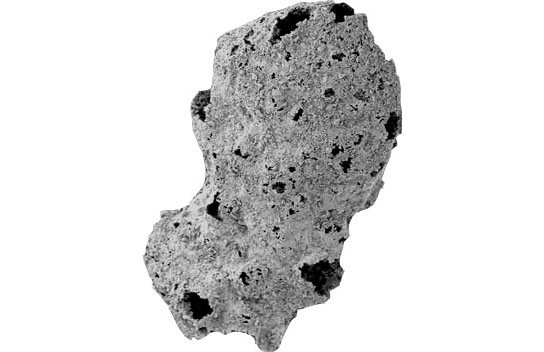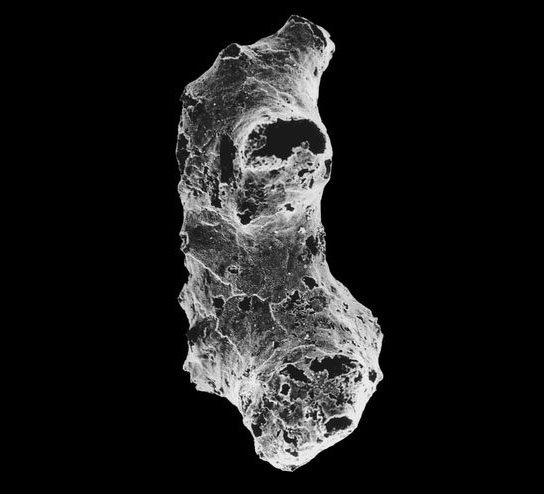
While doing geological research in the Namibian desert, scientists believe they uncovered proof of the first animal to have existed on Earth. The sponge-like fossil, Otavia antiqua, is known to be between 760 and 550 million years old and appears to have evolved before, and survived through, the environmental extremes of snowball Earth.
The scientists were part of an international team to have uncovered what they think is proof of the first animal to have existed on Earth. The important find, made during geological research in the Namibian desert, could push the emergence of animal life back many tens of millions of years.
St Andrews’ geologists Dr. Tony Prave, Donald Herd and Stuart Allison played a key role in the discovery and subsequent documentation of the sponge-like fossil found in the ancient Namibian rocks. Known to be between at least 760 and 550 million years old, the fossils appear to be ‘hollow globs’, the remains of what could be classed as the stem group organism, the ancestor of all animals.
The discovery of the oldest animal fossil found to date was made by palaeoanthropologist Dr. Bob Brain, from South Africa’s Ditsong Museum, along with Dr. Prave and Mr. Karl-Heinz Hoffmann of the Namibian Geological Survey. They made the find in Namibia’s Etosha National Park, a huge flat area of land known as ‘the place of dry water’.

Named Otavia antiqua, the submillimeter-sized fossilis a sponge-like organism that was preserved in ancient marine rocks. It is thought to date to a time when the most extreme climatic changes in Earth’s history – the ‘snowball Earth’ glaciations – occurred, up to 700 million years ago.
Until the discovery, it was thought that the first animals emerged between 600 and 650 million years ago. The team’s findings echo the predictions of the key dates of early life forming by geneticists studying the ‘molecular clocks’ of other species.
Dr. Prave, who has worked on ancient rocks around the world, commented, “The findings are a tribute to the labors of Bob Brain who has worked tirelessly for the better part of two decades hunting for such fossils. It was deeply satisfying to hold them in the palm of your hand and realize that these could mark the advent of animals.”
The findings, published this week in the South African Journal of Science, involved a team of ten scientists from Namibia, South Africa, Australia, and the UK.
Dr. Prave, a co-author of the paper, said that the tiny creatures were pierced by different-sized openings that were probably used to pass nutrients into their bodies. They also found a ‘network of internal passageways’ thought to be a primitive gut.
He continued, “What is remarkable is that this organism appears to have evolved before, and survived through, the environmental extremes of snowball Earth. This implies that the causes and conditions for the evolutionary leap from bacteria to animals have to be searched for much deeper in time than previously thought.”
Never miss a breakthrough: Join the SciTechDaily newsletter.